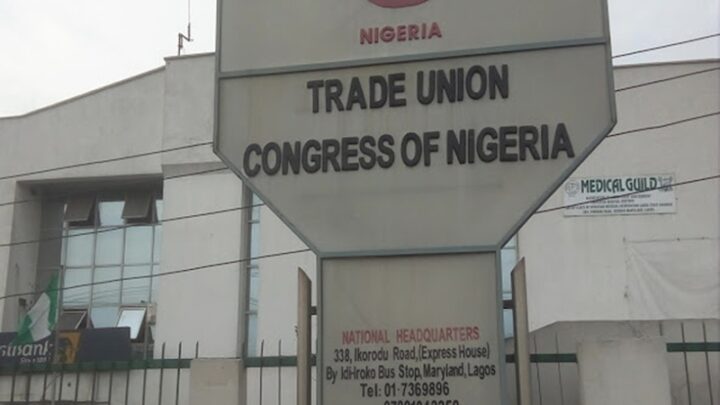The Trade Union Congress (TUC) has estimated that Nigeria would require an investment of approximately $120 billion to construct and rehabilitate federal roads across the country. The union stated that this enormous figure underscores the dire state of the nation’s road network and the urgent need for comprehensive intervention to address the infrastructure deficit that continues to hamper economic growth and public safety.
Speaking during a press briefing in Abuja, TUC President Festus Osifo highlighted that the country’s road infrastructure had suffered years of neglect, inadequate funding, and poor maintenance culture. He noted that most of the existing federal highways are in deplorable condition, with potholes, eroded sections, and collapsed bridges making transportation both dangerous and inefficient. According to him, the lack of functional road infrastructure not only slows down the movement of goods and people but also contributes to higher costs in business operations, reduced productivity, and avoidable loss of lives.

Osifo stressed that the union’s estimate was based on assessments conducted across the six geopolitical zones, taking into account the total length of federal roads and the cost implications of building durable, modern highways. He said that if Nigeria is serious about economic transformation, then the road sector must receive priority attention comparable to energy and security.
He further lamented that current government allocations to road projects fall far short of what is required to close the gap. “When you compare the budgetary provisions to the scale of the challenge, it becomes clear that our approach has been piecemeal. What we need is a bold, long-term financing strategy that will mobilise both public and private capital for road development,” Osifo remarked.
The TUC suggested that the federal government should explore multiple funding options, including public-private partnerships (PPP), infrastructure bonds, and concessional loans, to raise the required capital. Osifo argued that the success of similar models in other countries demonstrates that private sector involvement can accelerate project delivery while maintaining quality standards.
He also stressed the importance of transparency and accountability in road construction contracts. The union warned that without proper monitoring, corruption and cost inflation could derail the entire programme, leading to substandard projects and wasted funds. “We have seen situations where roads constructed barely last two years before collapsing. That is unacceptable, and it is a result of poor quality control and lack of enforcement of contractual obligations,” he said.
On the economic front, the TUC maintained that massive road infrastructure development would have a multiplier effect, creating thousands of jobs in construction, engineering, manufacturing, and ancillary industries. Improved road connectivity, the union added, would also boost agricultural productivity by easing the transportation of farm produce from rural areas to urban markets, thereby reducing post-harvest losses and increasing farmers’ incomes.
The union leader pointed out that the current condition of roads in major commercial corridors, such as the Lagos-Ibadan Expressway, Abuja-Kaduna-Zaria-Kano Highway, and the East-West Road, continues to be a bottleneck to trade and logistics. Long travel times, frequent accidents, and vehicle breakdowns, he said, are now common occurrences, discouraging investment and increasing the cost of doing business.
Osifo also emphasised the link between road infrastructure and national security, noting that poor road access in some parts of the country hampers the ability of security forces to respond quickly to emergencies. In his view, developing a modern, interconnected highway system would not only enhance economic activities but also improve the government’s capacity to tackle insecurity.
The TUC urged the government to declare a “national road emergency” and set measurable targets for road development over the next decade. According to Osifo, the goal should be to upgrade the country’s entire federal road network to international standards within that period, ensuring that every major city and economic hub is connected by reliable highways.
He also called on state governments to complement federal efforts by improving state and rural roads, stressing that road infrastructure is a shared responsibility across all levels of government. “It is not enough for the federal government to do its part; states must also invest in the roads under their jurisdiction so that the entire transportation network works as a system,” he said.
The TUC president concluded by warning that without decisive action, Nigeria risks falling further behind in infrastructure competitiveness compared to other developing economies. He argued that the $120 billion figure, while large, represents an investment that will yield long-term benefits for generations to come, stimulating growth, reducing poverty, and enhancing the overall quality of life for Nigerians.
Economic analysts have backed the TUC’s call, noting that poor road infrastructure remains one of the biggest barriers to industrial expansion and regional trade in West Africa. They advised that Nigeria must take advantage of its strategic position in the African Continental Free Trade Area (AfCFTA) by ensuring that its roads can efficiently connect to neighbouring countries and key ports.
The debate over road funding comes at a time when the government is grappling with fiscal constraints, rising debt servicing costs, and competing demands in other sectors. Nonetheless, the TUC insists that with proper planning, prioritisation, and accountability, the goal of raising $120 billion for roads is achievable.
Support InfoStride News' Credible Journalism: Only credible journalism can guarantee a fair, accountable and transparent society, including democracy and government. It involves a lot of efforts and money. We need your support. Click here to Donate
